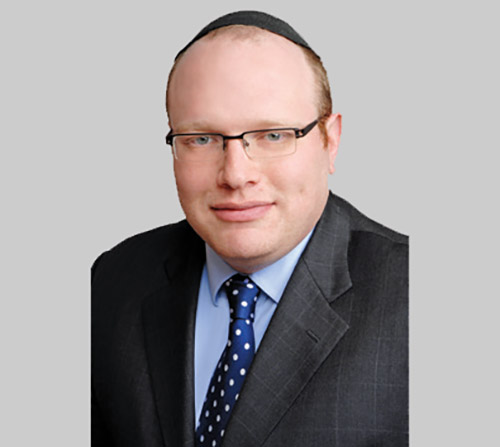
We have just finished a fairly wet and rainy Rosh Hashanah—in truth, I can’t even remember a Rosh Hashanah during the past 10-20 years when it rained like this and Tashlich was rained out. With it raining on both days of Yom Tov, I had time to read perhaps even a bit more than I normally would over a regular Yom Tov. My family and friends know that I am a fairly serious reader—I guess you have to be to be a serious newspaper publisher—and in addition to reading my steady weekly diet of Jewish newspapers and magazines, I have found myself over the years being drawn more and more to books of stories by and about Jewish leaders, rabbis, gedolim and of course, ordinary Jews who have experienced or undergone remarkable things.
Over Yom Tov, I was able to read through titles as diverse as “A Life Steady and Whole: Recollections and Appreciations of Rabbi Aharon Lichtenstein, zt”l,” (edited by Elka Weber and Joel B. Wolowelsky, Ktav, 2018), “People Speak 10” by Chaim Walder (Feldheim, 2018) “Motivated by the Maggid” by Rabbi Paysach J. Krohn (Artscroll, 2018) and, perhaps closest to home for me, the recently published “Shul With a View: A Rabbi’s Personal Journal” by Rabbi Ron Yitzchok Eisenman of Congregation Ahavas Israel in Passaic (Shaar Press, 2018).
I don’t know Rabbi Eisenman well, although we have shaken hands a few times and The Jewish Link has published a few excellent columns and pieces from him over the years. However, I feel —like many others, I suppose—that I have come to know him a bit through his regular column in Mishpacha magazine, which is one of my favorite weekly reads outside of The Jewish Link. I know that many times his column has caused me to tear up and reflect on just how special Rabbi Eisenman must be and how lucky his shul is to have him.
His weekly Michpacha column, now curated in book form, always reminds me of one of the things that I miss most about the active rabbinate. (For disclosure’s sake, I am officially a retired rabbi. My rabbinic career was relatively short.) Rabbi Eisenman is always able to bring out what’s special and unique about the mostly ordinary families whom he serves and with whom he interacts.
And that’s what I miss. I miss the rabbi’s unique perspective when he looks out at a large and diverse kehillah and realizes that literally each and every one of them is special in their own way. When working as a community rabbi, if you are doing your job correctly, you begin to realize that every member—and by extension, every Jew—is special in their own way. You see every family at their best, at smachot, and at their worst, in times of crisis and mourning. You really get to know them in a way that few others in the community do.
For some members, it may be that they have a very special and extraordinary bond or relationship with their wife, brother, sister, father, mother, grandchildren or grandparent. For some, it may be in how they approach their business affairs, their learning, their davening or their neighbors and friends. As a rabbi, I learned many times that often those who were not that visibly Orthodox or interested in being shomer Shabbat were sometimes on a far higher level than I was in so many other areas of life.
With Rabbi Eisenman’s column and book, as he recounts masterfully tale after tale of incredible experiences and events, usually among his own shul members and their families, I was reminded about what I am missing. I don’t miss everything about being an active rabbi, but I do miss having that rabbi’s perspective, that rabbi’s eye view, so to speak, and that special insight into each family. Everyone is special in some way. It’s almost a cliche phrase in our society today, but I believe all our local Orthodox rabbis know this deeply and truly.
Yasher koach to Rabbi Eisenman for publishing “Shul with a View” and I look forward to reading your column for many years to come!
Note: Speaking of books and stories, see my review in this week’s edition on page 58 of the autobiography of Rabbi Joseph Karasick, entitled: “Thirteen Steps – Orthodox Judaism Comes of Age: My Life and Times.”
By Moshe Kinderlehrer, Jewish Link of New Jersey
founder and co-publisher










